JERUSALEM: Israel’s central election committee said early turnout for the repeat election has been slightly higher than the previous round.
It said that as of 10:00am on Tuesday, some 15 percent of Israelis had already cast their ballots. It marked more than a 2 percent increase over the figure at the same time in April.
Voter turnout has emerged as a key element of this election. Election day is a national holiday, a measure aimed at encouraging participation.
In April’s election, turnout was about 69 percent, slightly below the 72 percent figure in the previous election in 2015.
But turnout in the minority Arab sector was just below 50 percent and many Arab voters boycotted the election. The various Arab leaders have handed together on a joint list for this election, hoping to boost turnout.
Israeli Prime Minister Benjamin Netanyahu faces a battle for political survival in a closely fought election on Tuesday that could end his 10-year domination of national politics.
Opinion polls put former armed forces chief Benny Gantz’s centrist Blue and White party neck-and-neck with Netanyahu’s right-wing Likud, and suggest the far-right Yisrael Beiteinu party could emerge as kingmaker in coalition talks.
“(The election) is very close. I call on all citizens of Israel to come vote,” Netanyahu said, his voice hoarse after weeks of campaigning, as he cast his vote in Jerusalem shortly before 10 a.m.
Gantz voted shortly afterwards in Rosh Haayin, and wished everyone luck.
The two main parties’ campaigns in Israel’s second parliamentary election in five months point to only narrow differences on many important issues: the regional struggle against Iran, ties with the Palestinians and the United States, and the economy.
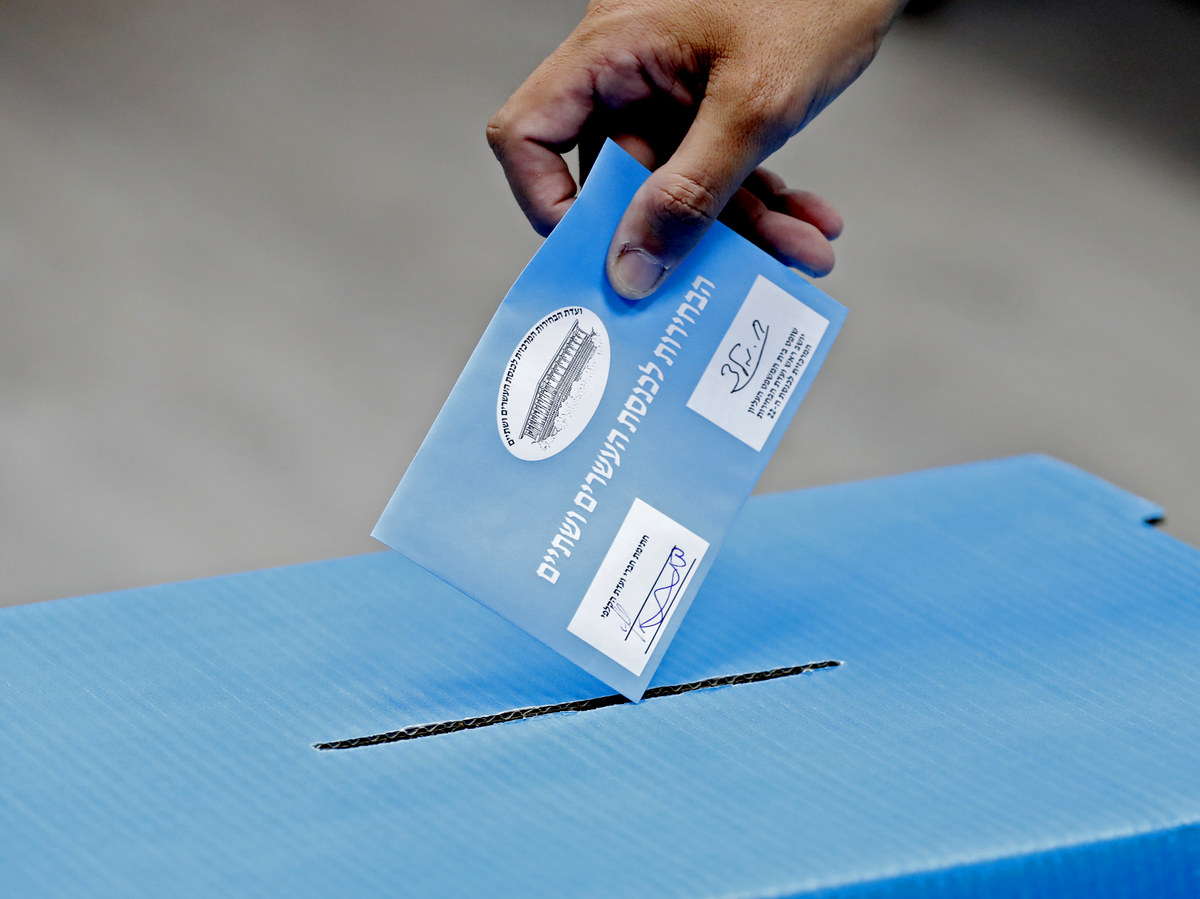
An Israeli man casts his ballot during Israel's parliamentary election, at a polling station in Rosh Haayin, on Sept. 17, 2019. (Jack Guez /AFP)
An end to the Netanyahu era would be unlikely to lead to a big change in policy on hotly disputed issues in the peace process with the Palestinians that collapsed five years ago.
Netanyahu has announced his intention to annex the Jordan Valley in the occupied West Bank, where the Palestinians seek statehood. But Blue and White has also said it would strengthen Jewish settlement blocs in the West Bank, with the Jordan Valley as Israel’s “eastern security border.”
The election was called after Netanyahu failed to form a coalition following an April election in which Likud and Blue and White were tied, each taking 35 of the 120 seats in the Knesset, or parliament. It’s the first time Israel has ever had two general elections in a single year.
Netanyahu, 69, has cast himself as indispensable and blighted by voter complacency over his tenure — the longest of any Israeli prime minister. He was prime minister from June 1996 until July 1999 and has held the post since March 2009.
Warning he may be replaced by “leftists” who would weaken Israel in the eyes of both foes and friends, Netanyahu has flooded the airwaves and social media with calls on his Likud faithful to turn out in force.
Polling stations opened at 7 a.m. (0400 GMT) and will close at 10 p.m. when Israeli media will publish exit polls giving a first indication of the outcome.
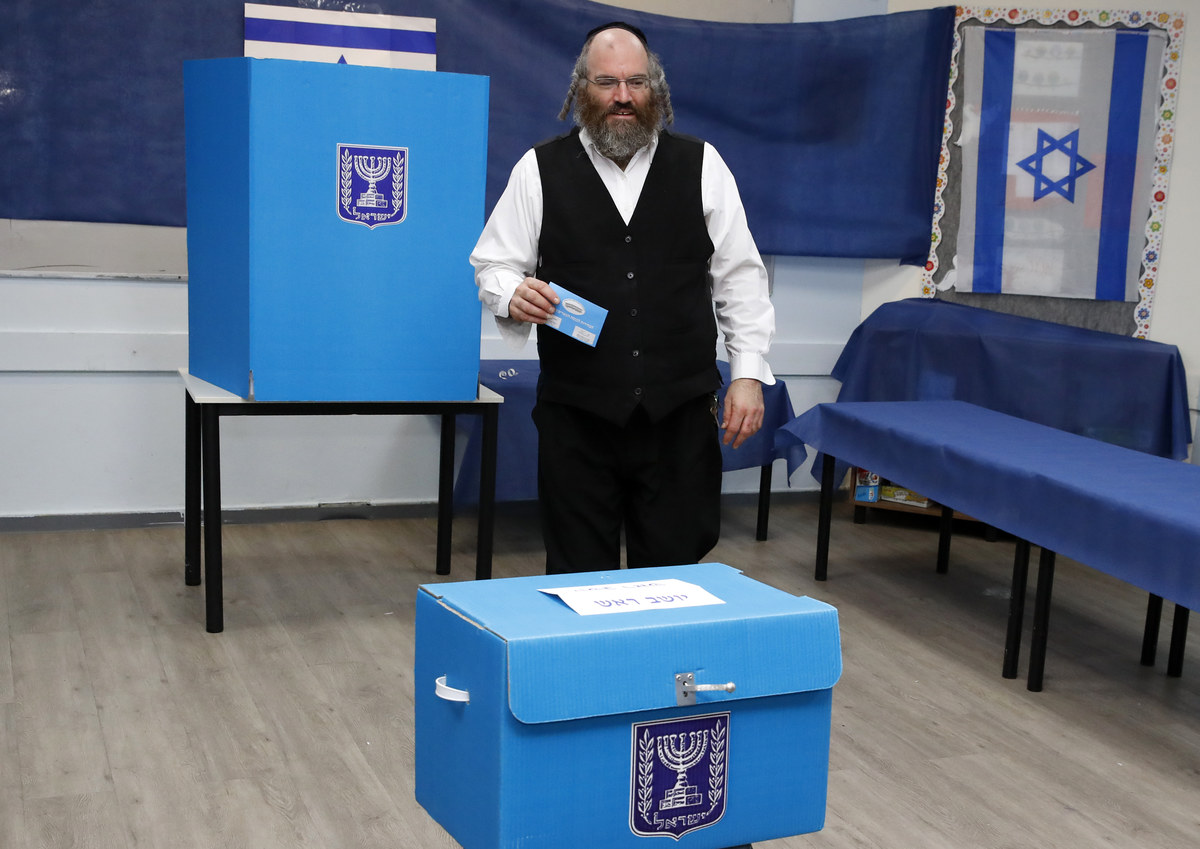
An ultra Orthodox Jewish man casts his ballot during Israel's parliamentary election, at a polling station in Rosh Haayin, on Sept. 17, 2019. (Jack Guez/AFP)
“It’s going to be close. It’s going to be a close election,” US President Donald Trump told reporters on Monday in the Oval Office.
Both Netanyahu and Gantz, 60, have tried to energize their bases, and poach votes from smaller parties.
Netanyahu portrays Gantz as inexperienced and incapable of commanding respect from world leaders such as Trump. Gantz accuses Netanyahu of trying to deflect attention from his possible indictment on corruption charges that the prime minister has dismissed as baseless.
Hagit Cohen, a 43-year-old social worker, said she would back Blue and White rather than her former favorite, the now fringe Labour party: “I don’t want my vote to be wasted. Gantz may not be perfect, but enough is enough with Bibi (Netanyahu).”
Gantz also worries about public apathy. Interviewed by Army Radio, he urged Tel Aviv residents to “put down their espressos for an hour” and vote — a nod to the secular, middle-class constituency he hopes to mobilize against pro-Netanyahu religious-nationalists.
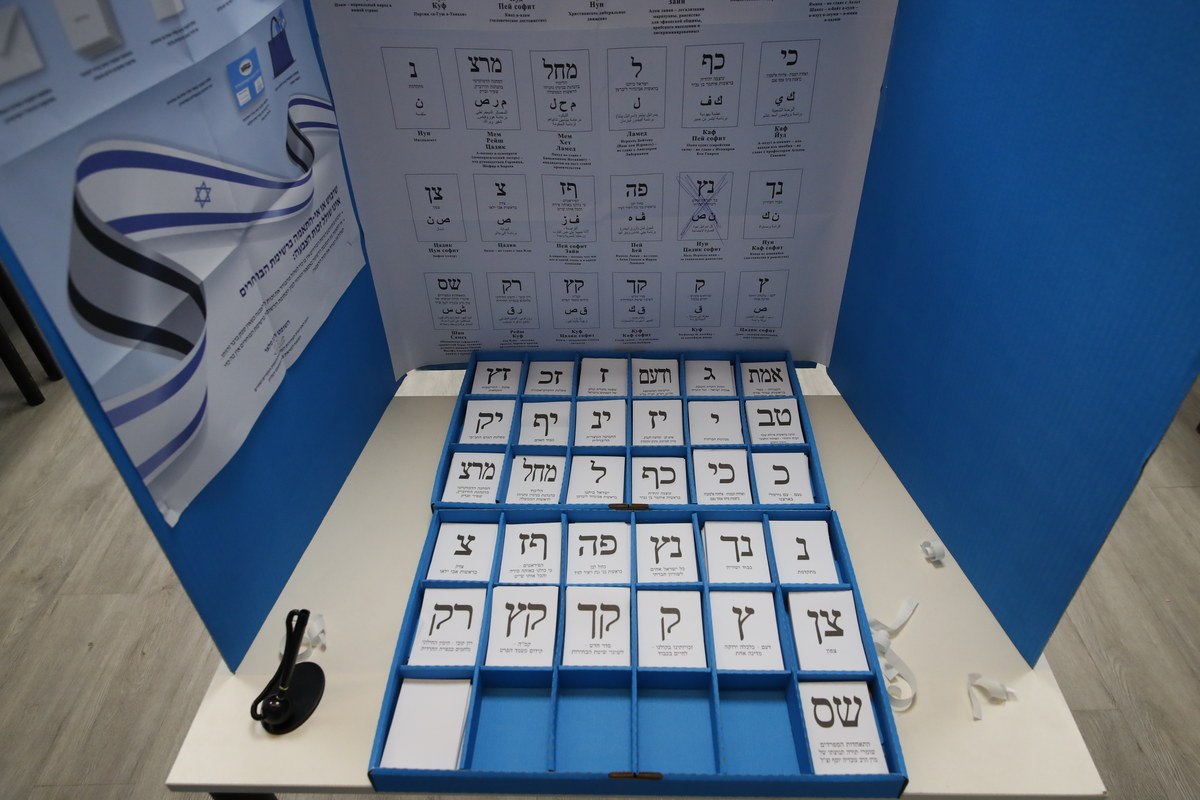
Ballots lie on a table during Israel’s parliamentary election, at a polling station in Rosh Haayin, on Sept. 17, 2019. (Jack Guez/AFP)
“There is a definite sense of fatigue. Many Israelis are fed up with the politicians, or expect more of the same,” said Amotz Asa-El, research fellow at Jerusalem’s Shalom Hartman Institute.
Netanyahu, Asa-El said, “has always divided the electorate into ‘theirs’ and ‘ours’. This time he’s reading the political map even more closely and knows that he needs every extra vote.”
In the Israeli-Arab town of Taybeh, residents showed up to vote without incident. In April, there was some controversy when election monitors from Netanyahu’s Likud party turned up with cameras in Arab areas. Locals accused them of voter intimidation with Likud saying they were trying to prevent election fraud.
Before the last election, Trump gave Netanyahu a boost with US recognition of Israeli sovereignty over the Golan Heights. This time, the White House seems more preoccupied with Iran.
The Trump administration plans soon to release an Israeli-Palestinian peace plan that may prove a dead letter: The Palestinians have rejected it in advance as biased.
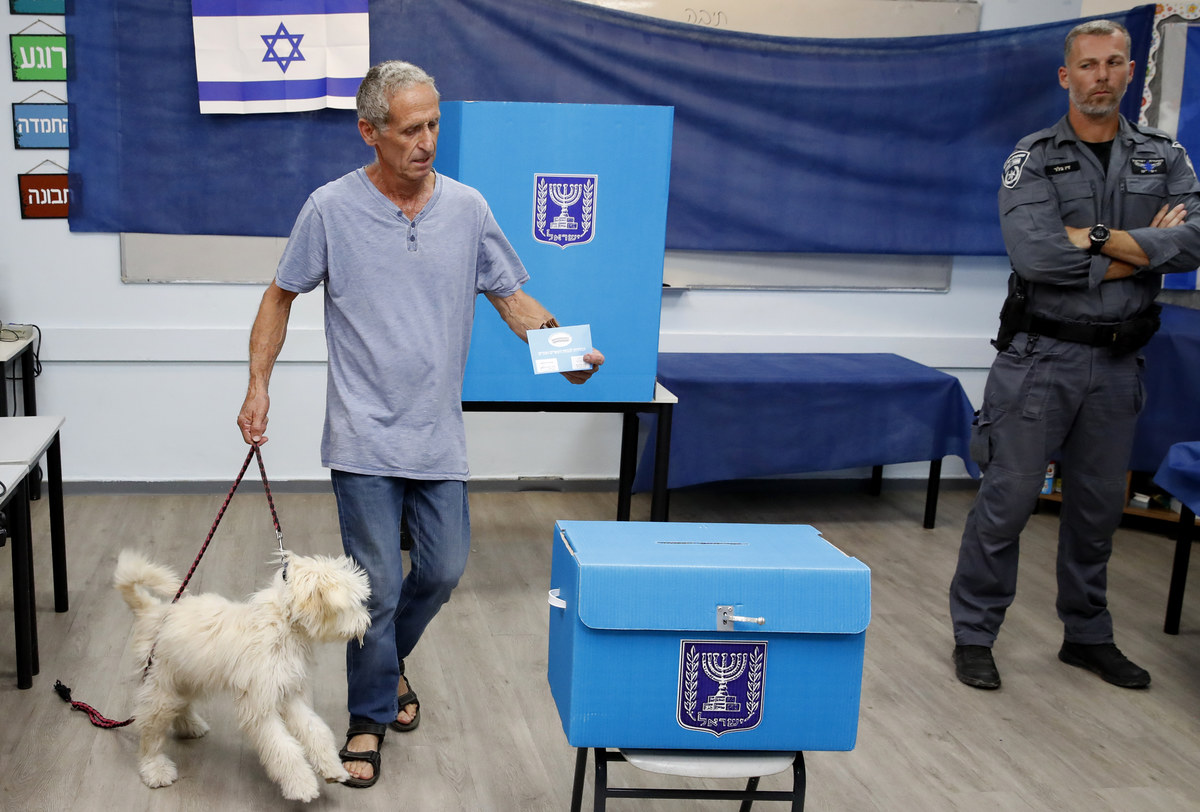
An Israeli man holds his dog while casting his ballot during Israel's parliamentary election at a polling station in Rosh Haayin, on Sept. 17, 2019. (Jack Guez/AFP)
In Gaza, Palestinians awaited the results of the vote.
“This election affects many things in our life,” said Mohamad Abdul Hay Hasaneen, a janitor in the city of Khan Younis. “There might be limited escalations after the election, but I don’t think this would result in a full war.”
Still, the telegenic Netanyahu’s open door in Washington and other world capitals, at a combustible time on Israel’s borders with Syria, Gaza, and Lebanon, remains a big draw domestically.
“There’s no one else running who is worthy of being prime minister,” said Alon Gal, a 53-year-old hi-tech manager who plans to vote Likud after previously supporting a party further to the right. “With him, at least I know who I am dealing with.”
Weeks of wrangling over who should be tasked with forming the next government could follow the election. Opinion polls indicate Yisrael Beiteinu could hold the key to the next coalition because it is forecast to win double its representation in the Knesset, from five seats to 10.
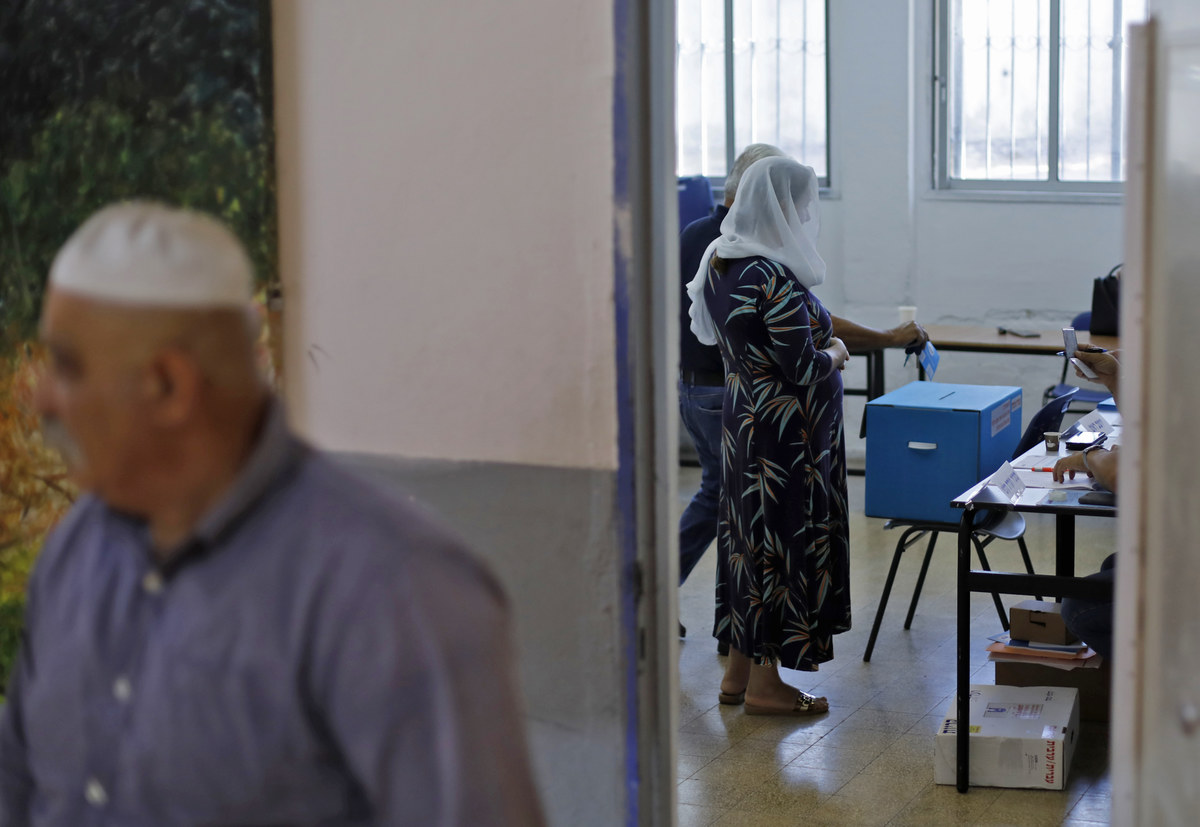
Members of the Israeli Druze community cast their votes during Israel's parliamentary elections on Sept. 17, 2019, in Daliyat al-karmel in northern Israel. (Jalaa Marey/AFP)































